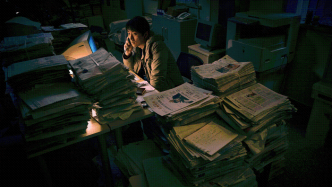
On March 24, the movie "Not Ending" was finally released. Since starting this project in the winter of 2017, director Wang Jing and this film have spent 6 years.
"Not Ending" tells the story of Han Dong (Bai Ke), a "Northern Piao" with only a junior high school education, in the "golden age" of paper media, with his dream of journalism and his girlfriend Xiaozhu (Miao Miao) bravely chasing dreams in Beijing. By chance, Han Dong is appreciated by Huang Jiang (played by Zhang Songwen), a well-known reporter from "The Capital Times", and with Huang Jiang's help, he enters the newspaper as an intern. During a news investigation, Han Dong discovered the bigger truth behind the shady scene of "hepatitis B awaiting inspection", and tried to change the social injustice faced by 100 million hepatitis B virus carriers through a report that reshaped the perspective...
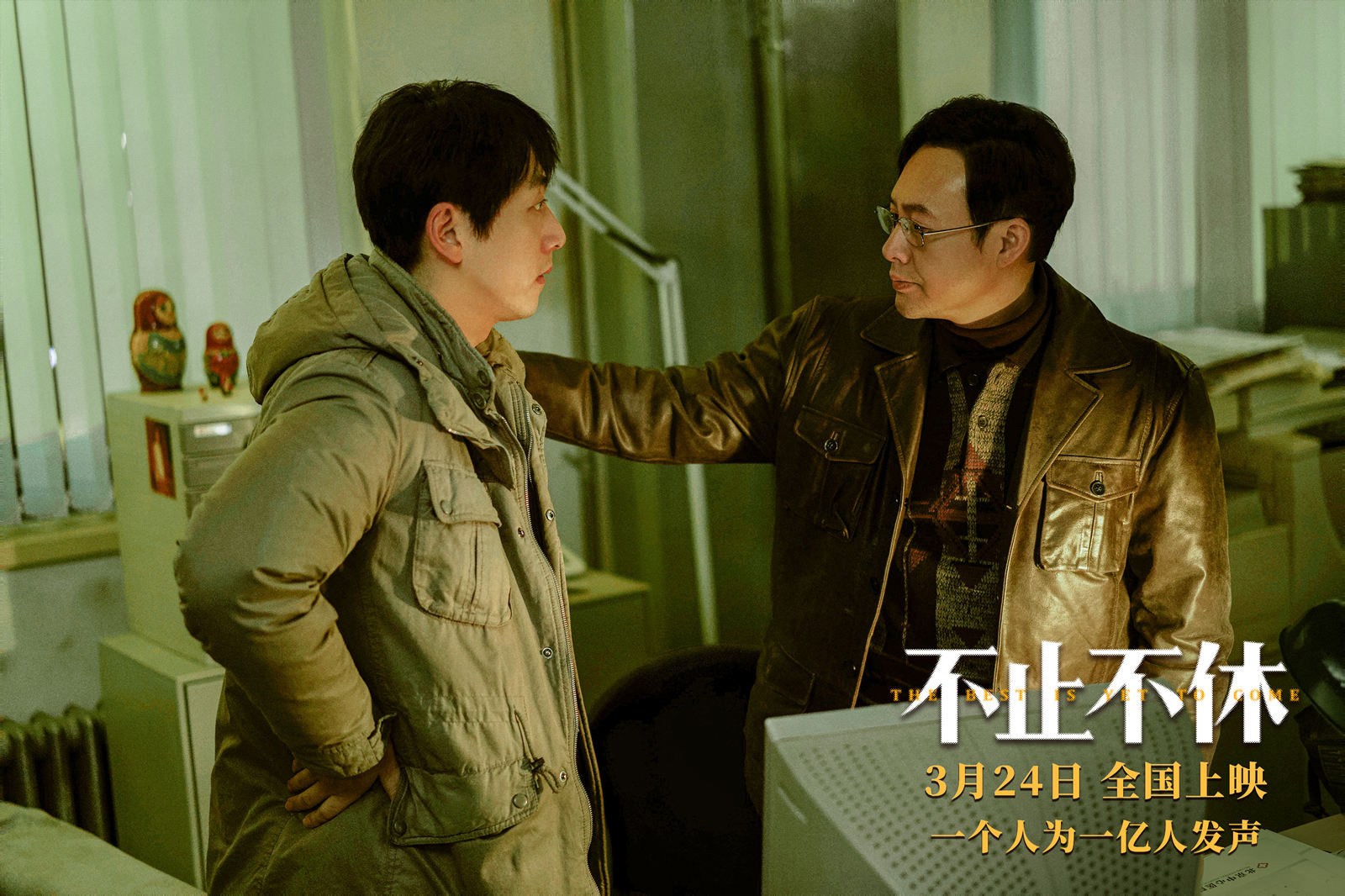
"Not Ending" stills, Bai Ke (left) as Han Dong, Zhang Songwen as Huang Jiang
Through the growth process of an "intern reporter", "Not Ending" shows the neglected people and corners, reveals the silent plight of a large and silent group with restrained brushstrokes, and tells the story of "one person for one" from the perspective of an "investigative reporter". The anti-discrimination story of "100 million voices" shows the choice and persistence of media people, and also explores some "collisions" between news ethics and reality.
Director Wang Jing, graduated from the Directing Department of Beijing Film Academy, joined director Jia Zhangke's creative team in 2010, and served as executive director in films such as "Old Man in Mountains and Rivers" and "Children of Rivers and Lakes". The strong realistic style, the characteristics full of humanistic care, together with some "surrealist" expressions, all have the demeanor of the mentor Jia Zhangke. As a new generation of filmmakers, Wang Jing also has his own idealism and confusion. By collecting a large amount of realistic materials and making friends with real people, Wang Jing condenses the growth history of the fledgling young investigative journalists in "Not Ending" into a story that directly hits the pain points of the audience. "Is there anything in this world that has nothing to do with us?" From the appearance of the film's trailer, this calm but heart-wrenching sentence seemed deafening.
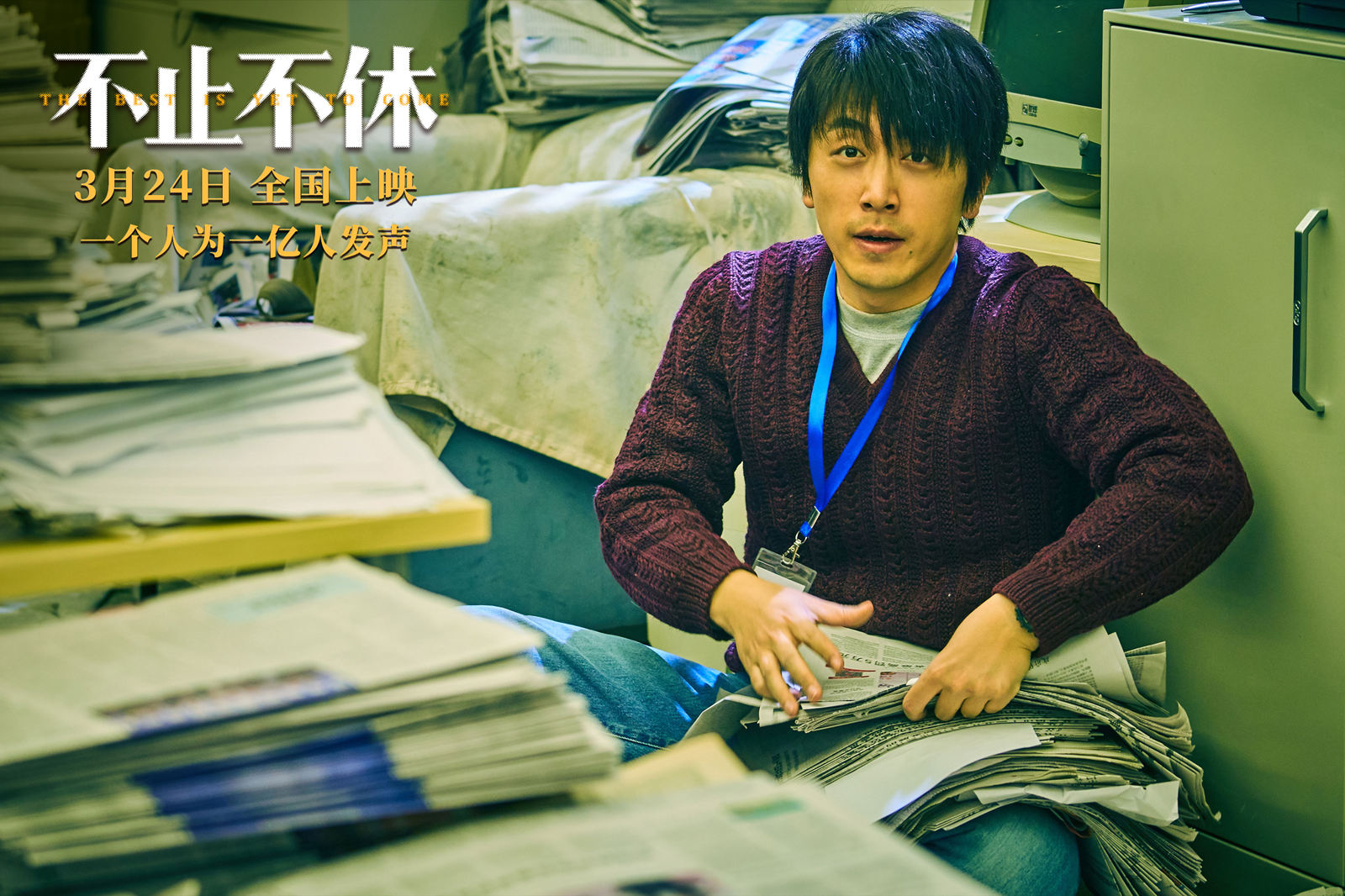
Stills of "Not Ending"
As a rare film with the theme of journalists, "Not Ending" has been highly praised by many filmmakers in the industry since its world premiere at the Venice Film Festival three years ago. "What journalists do has something in common with what filmmakers do: to observe, record, and then present. In this process, we more or less convey our own imagination of the world."
Wang Jing called the "carriers of hepatitis B virus" "comrades in arms". Almost all the plots related to the background of this incident in the film were played by "real comrades in arms". Although the former Ministry of Labor and Social Security and the Ministry of Health issued the "Opinions on Safeguarding Employment Rights of Hepatitis B Surface Antigen Carriers" in 2007, requiring employers to, in the process of recruiting workers, except for jobs prohibited by national laws, administrative regulations, and the Ministry of Health However, after the film was completed, when Wang Jing asked the "comrades in arms" in the film to share their real names, everyone gave a negative answer. He knows that there are still many stories to be told in this world, which need to be "endless".
On the day of the film's release, director Wang Jing and starring Bai Ke came to Shanghai to exchange stories behind the scenes of the film with students from Shanghai Vancouver Film Academy and Shanghai Theater Academy. Some students asked the director about the meaning of the title of "Unstoppable", Wang Jing said: "These four words are used as our title, and they cover many meanings at the same time. The way of the future." At the same time, director Wang Jing also used the title of the film to encourage the students: "It should be the best to strengthen one's confidence in the best of times, and to keep doing one's own things well just like the title of the film."
At the same time, director Wang Jing also accepted an exclusive interview with The Paper journalists.
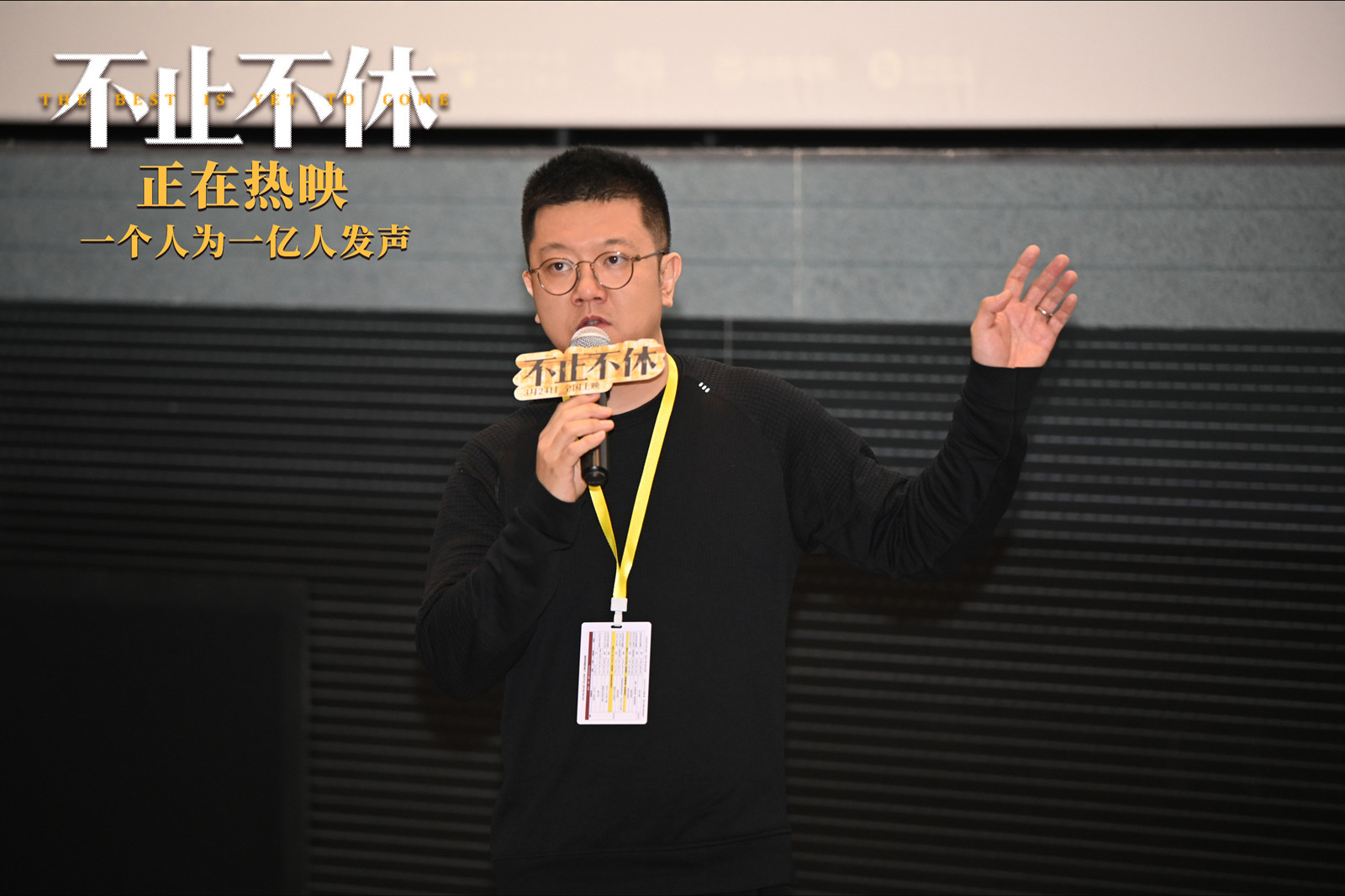
Wang Jing
【dialogue】
"I'd rather talk about something that could be a step forward"
The Paper: In the original design, was the film a character-led growth story of a reporter, or an event-led story of speaking out for the hepatitis B virus carrier group?
Wang Jing: During the editing process, show the film to friends around you, and everyone will be more or less confused like this. But I think this confusion was resolved later, and of course I was a little helpless. In my own mind, this movie must be based on the growth of the characters, with a real investigative reporter as the main character prototype, showing several stages of the character's growth experience, until finally reaching a stage of "" victory".
Of course, I can also understand that the audience will care about and empathize with such an event with strong emotional concentration. Compared with a young person's personal growth and dreams, the 100 million people with hepatitis B will be more touching to the audience. From my point of view as a creator, all stories must return to Han Dong's growth. For example, the two incidents of mine disaster and hepatitis B are actually discussing different aspects of a person's growth process. He followed and convinced Huang Jiang's news concept, and later found that the reason why he loves journalism is his true heart. What, who am I. Everyone's background and growth process are different. He and Huang Jiang are different people. Both of them may have a respect for journalism and journalism professionalism.
I have always valued a concept - many things in Huang Jiang's view are sympathy, but in Han Dong's eyes, it may be empathy. Sympathy and empathy are different. People with different attitudes stand in different positions. When they grow up in different environments, what kind of people they will instantly empathize with. In the final growth process, people still have to be in the " who you are” makes a choice.
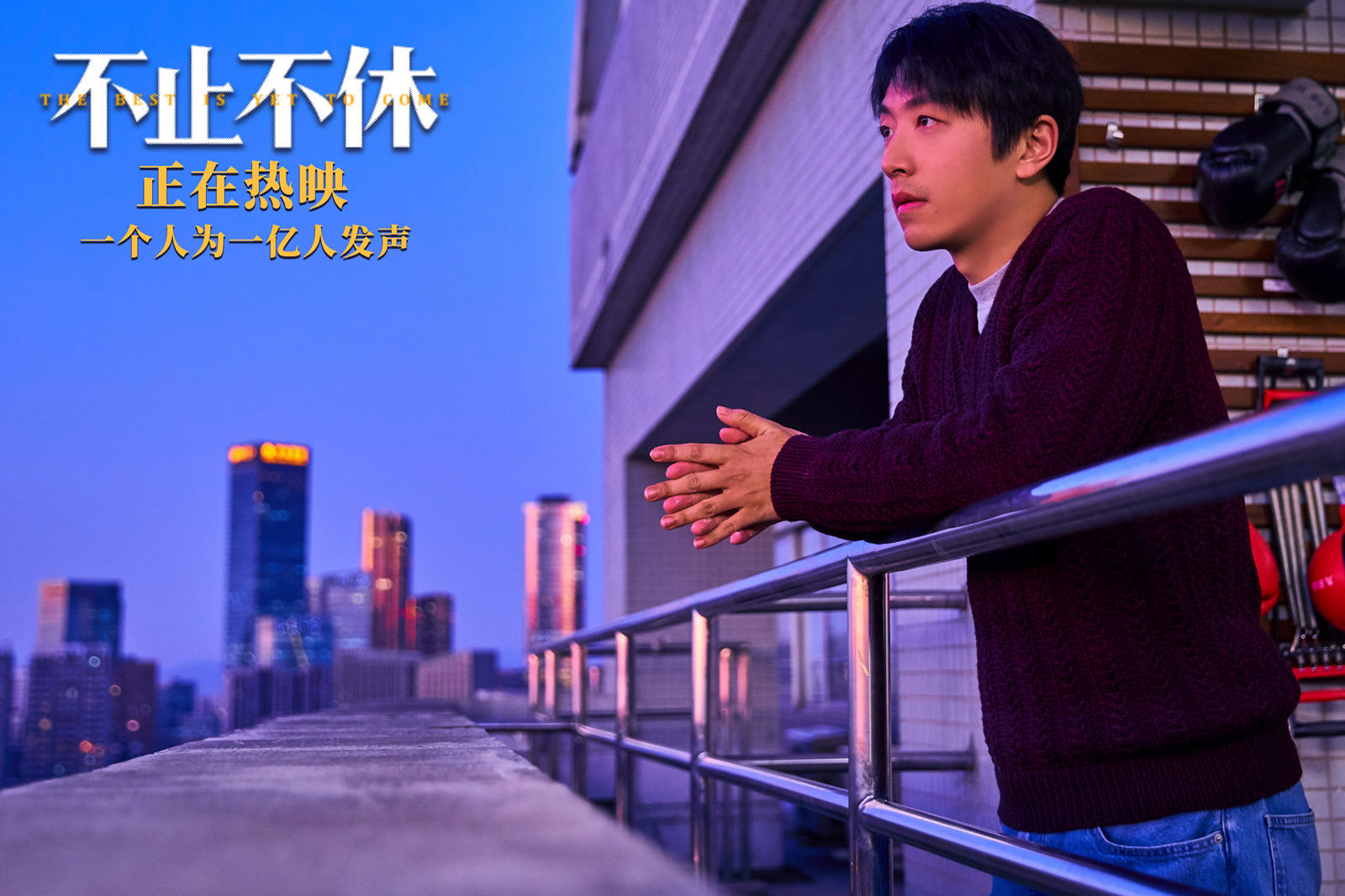
Stills of "Not Ending"
The Paper: To prepare for the film, you also met many former investigative journalists, but most of them are no longer in the industry. When they heard that you were going to do this subject, what impression did they have of this group? How did they react to your idea of making a film about news?
Wang Jing: At the premiere, I invited the first reporter I met when I was doing the first interview with the reporter crowd, from "Southern People Weekly". I prepared two movie tickets for the premiere for him, and after a day or two, I saw him post a Moments, lamenting that he, like Han Dong, is a young boy who just joined the newspaper office, and also did not major in journalism. At that time, he couldn't find his position in the newspaper office, and he didn't know what he could do. What impressed me the most was when he talked about how he “stealed” materials from the site of the mine disaster and rushed back to Beijing thinking that if the car crashes or overturns now, no one will ever know about it up. I was quite uncomfortable when he said this. The thing about movies is wonderful, that is, when we want to make a movie or some reporter’s stories, people may not be interested in it at first, but when they are truly presented on the screen, it will Evokes many real emotions and memories.
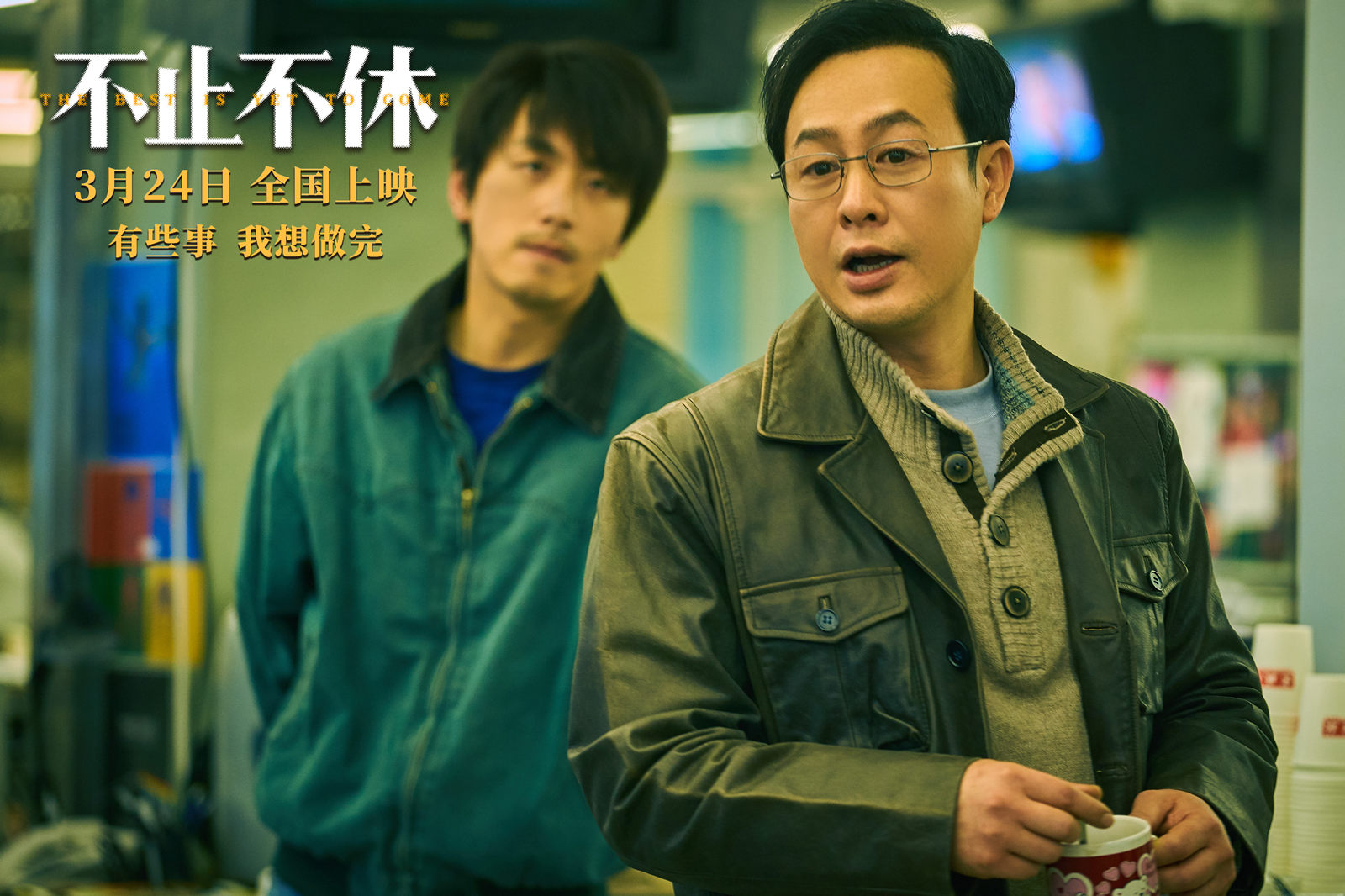
Stills of "Not Ending"
The Paper: How does the setting of a group of characters like Han Dong and Huang Jiang incorporate your observations of journalists?
Wang Jing: We have some specific character archetypes. I saw the contrast in these character archetypes. Some people are journalistic professionalism and rationality first, and some people are very emotional and passionate. They all exist in the industry and have made outstanding reports. Can we definitely choose the pros and cons of these two kinds of people? I don’t think so, so what our movies can provide is a space for discussion, what should be like as a reporter, and what should be like as a person? Viewers may see rational or emotional confrontations. At the same time, can we also imagine that maybe Huang Jiang was like Han Dong 20 years ago, what kind of things did he go through to make him what he is today?
The Paper: Do films like "Focus" and "Washington Post" that also start from the perspective of news media have reference significance for your creation?
Wang Jing: In different cultural contexts, what people talk about may be different, and the "confrontation" may be different. News-themed movies are a very common genre in foreign countries, but must we define it as the only feasible version? Some viewers may feel dissatisfied after watching it. There are some bigger events and the people who work for them, they exist, but when we make movies, we want people to believe in some things, through some pictures visible to the naked eye and sounds audible to the ears, let the audience believe The content in the movie makes the audience believe that something can be changed. Why choose the HBV carrier group? Because this event did have a huge impact on social issues in real life at the time, I prefer to discuss some things that may be changed and taken a step forward.
"Everyone gave me a negative answer"
The Paper: During the shooting of the film, a large number of real hepatitis B virus carriers appeared on the scene. What kind of considerations are there in this regard?
Wang Jing: One of my best friends in my youth growing up was also a carrier of hepatitis B virus. So I can more or less integrate some of my emotional relationship with him into the emotional relationship between Han Dong and Zhang Bo. Of course the relationship between the two of us is not as conflicting as they are, but I am also shocked why a best friend I have known for 20 years, when he is facing marriage, because of the carrier status It was only after he encountered difficulties that he confessed to me that he was a carrier. I will reflect and perceive from my perspective.
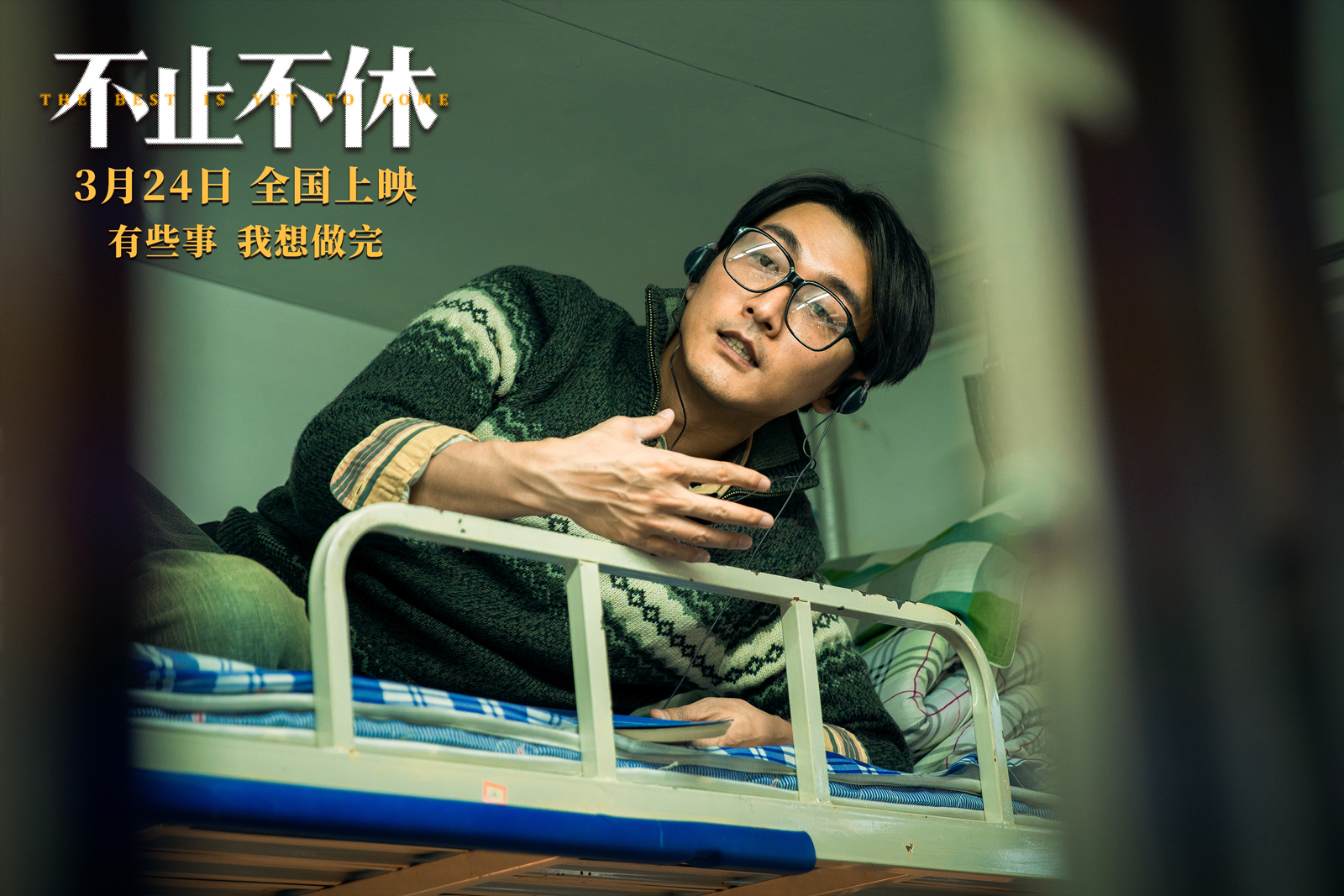
"Not Ending" Stills, Song Yang as Zhang Bo
In the last two days, the movie is being released, and I also know that this movie will definitely be noticed by people with hepatitis B virus carriers. For me, the starting point for doing this is love and respect. Perhaps on the one hand, I want them to be seen, paid attention to, and receive more care, and on the other hand, I don’t want this matter to bring them more negative effects, because people’s hearts are uncontrollable, and you don’t know what to expect from them. After being seen, will you feel that you are uncovering some scars that should not be uncovered. I've been thinking about this too recently.
The Paper: Letting them appear in the film as a group performer, does it take some effort to convince them like Han Dong in the movie looking for interviewees?
Wang Jing: It's like in the movie that Han Dong went to persuade the gang of Hepatitis B comrades. I think what can we do, we are not them, right? We have not experienced it, and we must not be able to fully empathize with their anxiety and predicament, but the first thing I can do is to be honest, and second, I am at least kind, so this is something I can guarantee by asking myself. There were 120 million (hepatitis B virus carriers) in China before, and its population base is indeed decreasing. If you check the data today, there should be 70-80 million people. In the face of such a large crowd base, we have contacted and docked through some public welfare organizations. There may be hundreds of comrades in arms that we can contact. Among these people, they are really willing to take off their masks and stand in front of the camera. Tell your story The people who spoke out, in fact, are the few we can see at the end, really not many. Later, I also encountered a problem. I thought that since everyone took the first step bravely, I could take this matter one step further in the final editing process. I went to communicate with them, hoping to write down the real origin and real handwritten signatures, and I put them in the pictures that you appear in the movie, but maybe everyone gave me a negative answer.
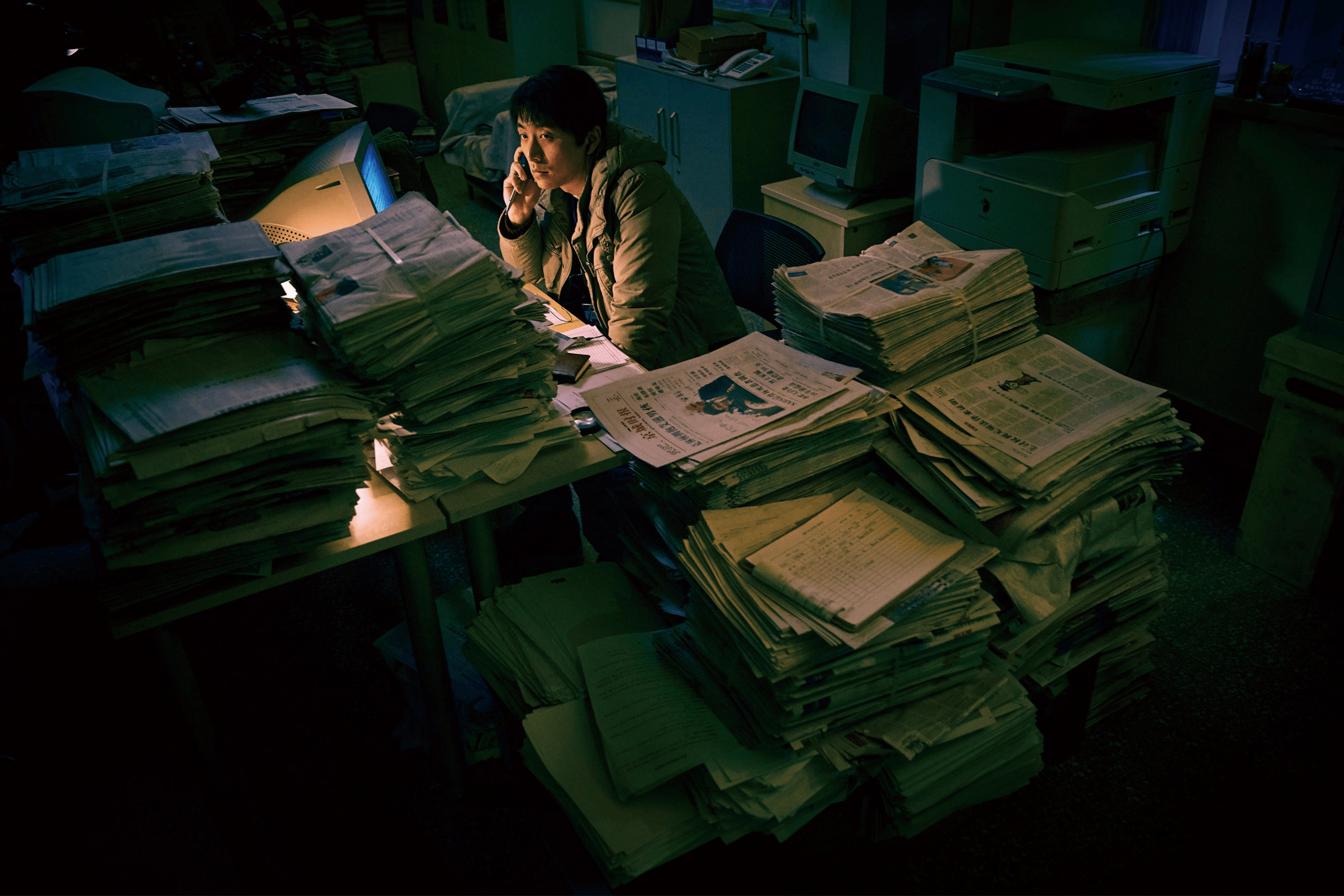
Stills of "Not Ending"
The Paper: The newspaper cast members in the film are all real media practitioners. What do you think these real characters have brought to the film?
Wang Jing: From the perspective of practical effects, on the one hand, it can help me and the actors, we can do our homework and research through conversations, and for actors such as Baike and Zhang Songwen, it can help them to improve themselves in the process of their performances. To achieve maximum peace of mind and practicality. I think that art creators may have a sense of insecurity to some extent, even the most confident people may have it. So when I told Teacher Songwen and Bai Ke that everyone around you is a real reporter and a media person with media experience, they would feel at ease and comfortable. As a director, I can provide them with a more secure space, which I think is helpful to the performance. The same is true for contact with real hepatitis B virus carriers. I'm not going to embarrass a white guy and say "I wrote 10 interview lines and you two read this dialogue to each other" because that's a bad and ineffective way to create a film Way. I have made documentaries, and I love documentaries very much. I am actually in awe of the truth.
We make a movie, whether it is a work of art or a commodity, the content in the movie is seen by the audience, and the audience may not care about a certain character during the two hours of watching the movie Is not a real reporter. But for me, when making a movie, there are always some people we want to reach the most, such as media practitioners and hepatitis B virus carriers that still exist today. They appear in the movie with their real identities, which to me means something other than the movie.
"A man of few words who keeps things to himself"
The Paper: How did the director find Bai Ke as the leading actor in the film? What qualities in Baike impress you the most?
Wang Jing: When I wrote the script, I had a vague image. In the earliest days of "Not Ending", there was a hand-painted concept poster of a faceless person looking up slightly in the crowd. When I was writing the script, I was thinking that Han Dong should be a person who is a bit unrecognizable in the crowd, an ordinary person, an ordinary person. I wanted to discuss the title with Mr. Li Zongsheng at the earliest, can I Use the name "Mortal Songs". I need such an image to let the audience build up a sense of belief. The protagonist is the same as me. He is nothing more than me. He is just as ordinary as everyone else. But what the whole film is about is that he might be a little bit different from you, which is something I have identified in my creative logic.
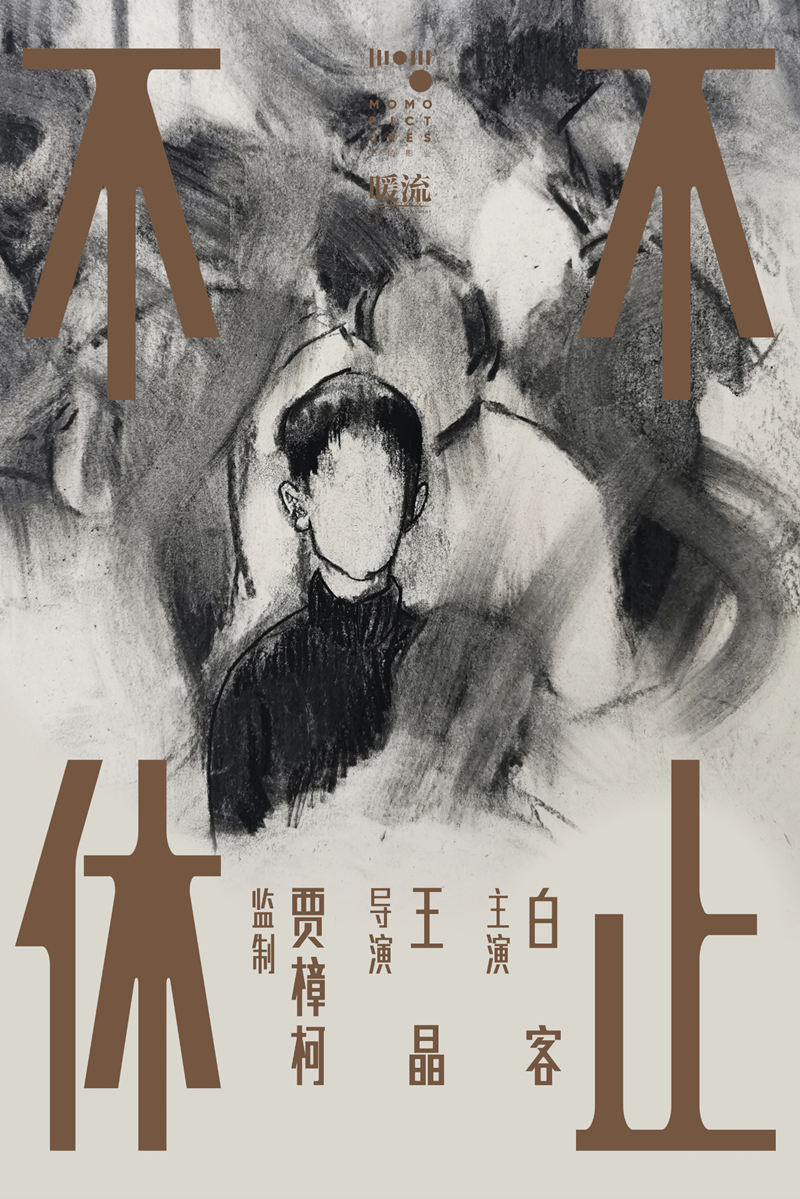
"Not Ending" teaser poster
Later, I looked for an actor who could carry my imagination. Nowadays, it is not easy to find an ordinary 30-year-old actor, and I don't have so many choices. I saw the ordinary and rough feeling I wanted in a photo of a white guest. When we met and chatted, I quite liked his taciturn appearance. He is actually a somewhat socially fearful person. The two of us made an appointment to meet in a coffee shop. Before the meeting, I did a lot of mental construction on what topics to talk about. I used to be a fan of his Internet age, and I have seen his funny comics. But when he entered the door, he took a thick script and said, isn't today a discussion about the script? Then we're in an embarrassment. I kind of like how he's a quiet guy who keeps things to himself.
The Paper: You have been the assistant director of director Jia Zhangke for many years. Tell us about his influence on you?
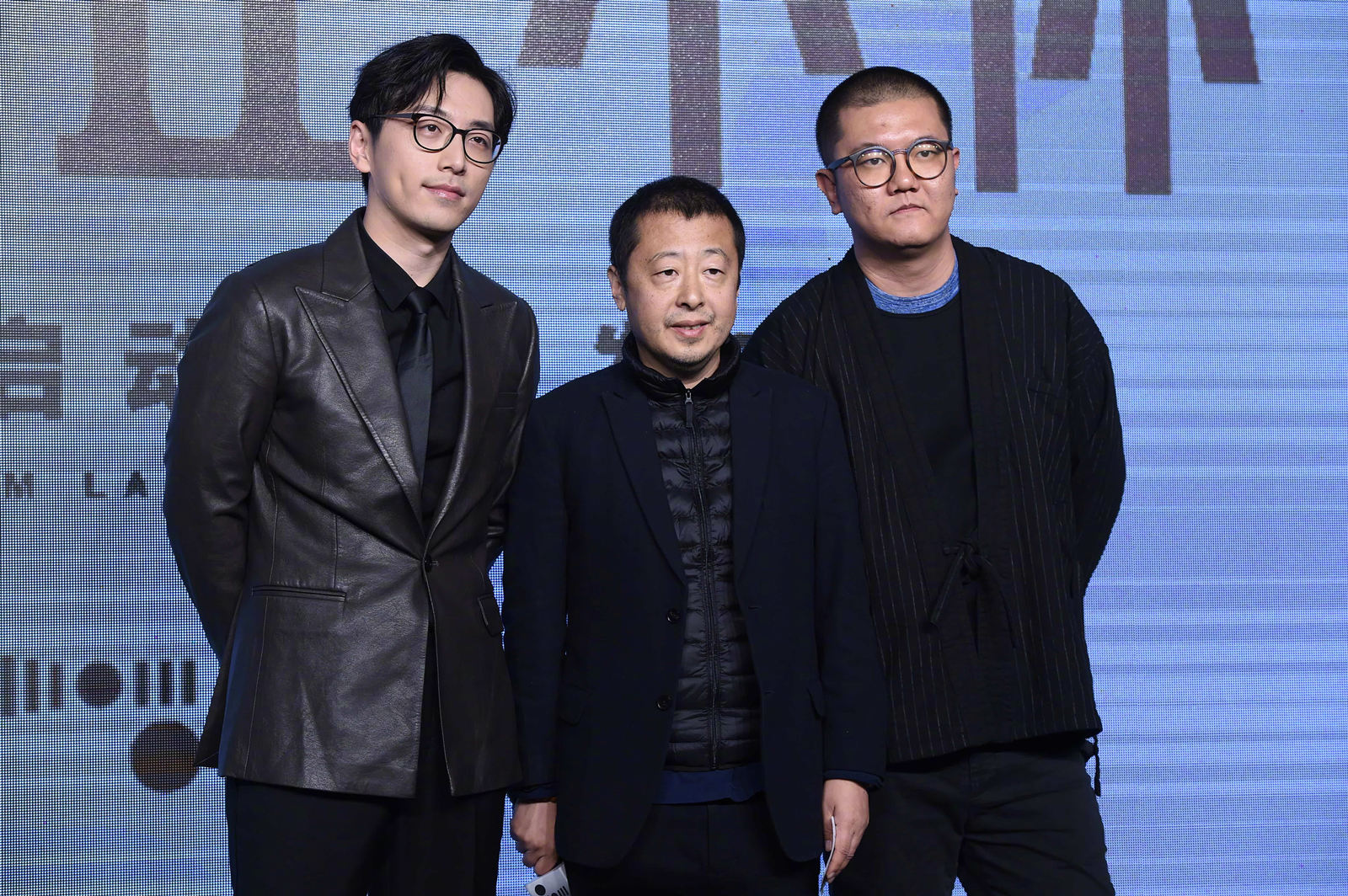
Bai Ke, Jia Zhangke and Wang Jing
Wang Jing: Not only me, many directors from Shanxi are willing to regard Director Jia as their spiritual idol. I was thinking before, why is it Director Jia?
When I think about it, I think about the time before I went to film school, trying to understand movies and falling in love with movies. I watched a lot of art films, found another form of film, and then took it seriously. But at that time, whether you were watching Woody Allen, or watching any Western film director, there was a distance from you, and you were different. But when you see a movie like "Xiao Wu", you find that there may be a movie that tells about some people and things in the same place as your living environment. The director may be the same as you, come from the same place, and have the same experience. When you grow up, what it plants in you is "possibility" - I am possible.
So you will definitely be willing to give this possibility a try. Including "Not Ending", put it in the context of 2003, and it is full of possibilities at the beginning of the new century. This may be the kind of guidance Jia Dao gave me at that time, something that can guide me. After working together, it is so hard for me to judge him. The relationship and emotions between the two of us are also quite complicated, like the relationship between Huang Jiang and Han Dong in the movie, from strange to familiar, there is "deep love, deep responsibility". But he will not interfere with my creation, and will not make any specific mandatory requirements to me, but he will always appear in the place far behind me when I need it, he makes me feel at ease, we are like this a relationship.
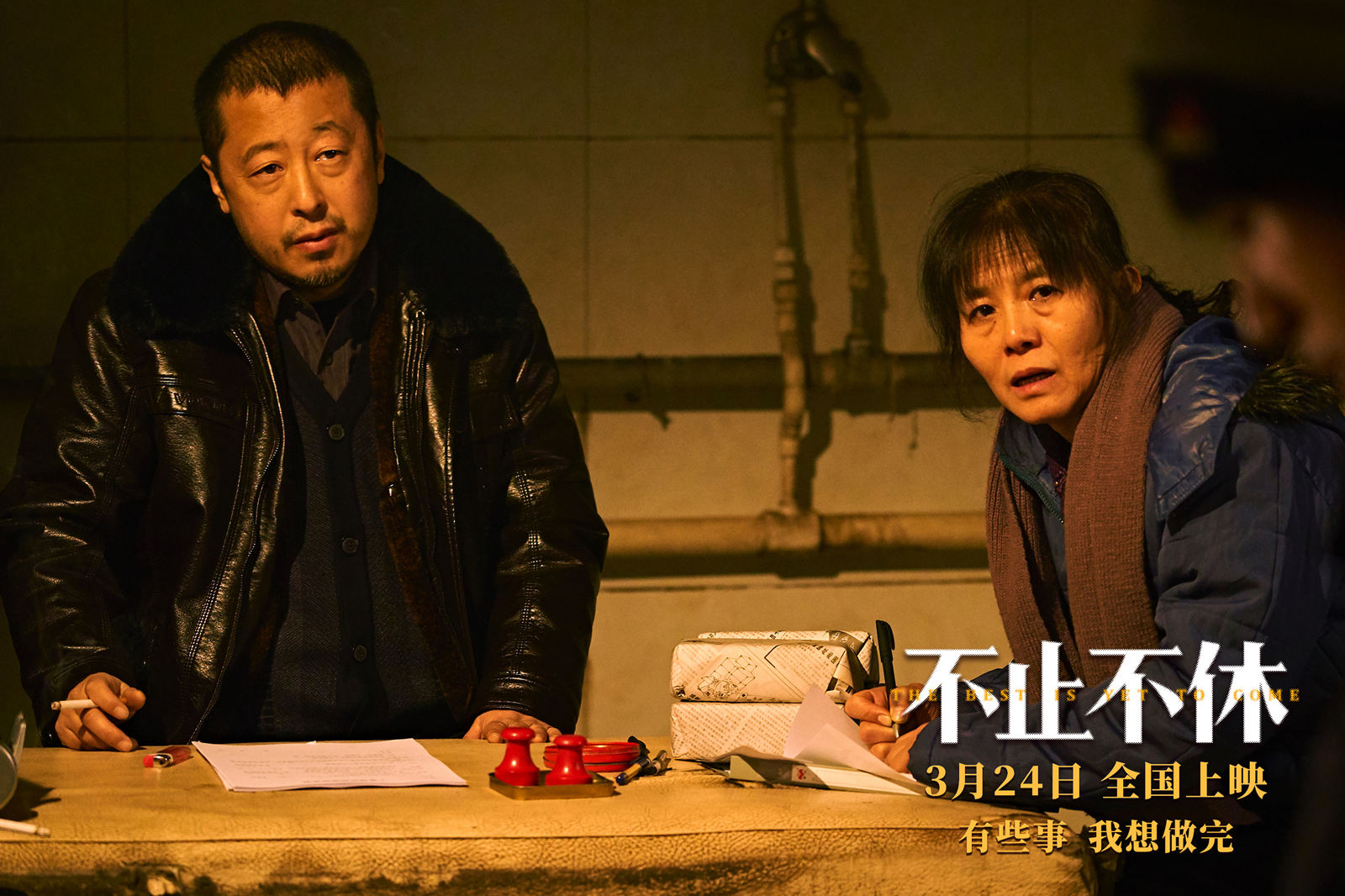
"Not Ending" stills, Jia Zhangke (left) plays the coal mine boss
"The root of the problem is that there are too few movies like this"
The Paper: As a creator, how do you view the relationship between movies and reality?
Wang Jing: Movies cannot provide a solution. One is that from the perspective of creators, it is impossible for you to tell everyone condescendingly what the only method is feasible, which is unrealistic. The second is that reality itself is constantly changing, so when it comes to the relationship between movies and reality, I have been thinking about why we make movies for a while. During that time, the whole person may be a little messy, so I started to think about these illusory questions. Later, I got an answer. It is true that there were too few theoretical classes in college. I had to find an answer that could convince me from my past experience.
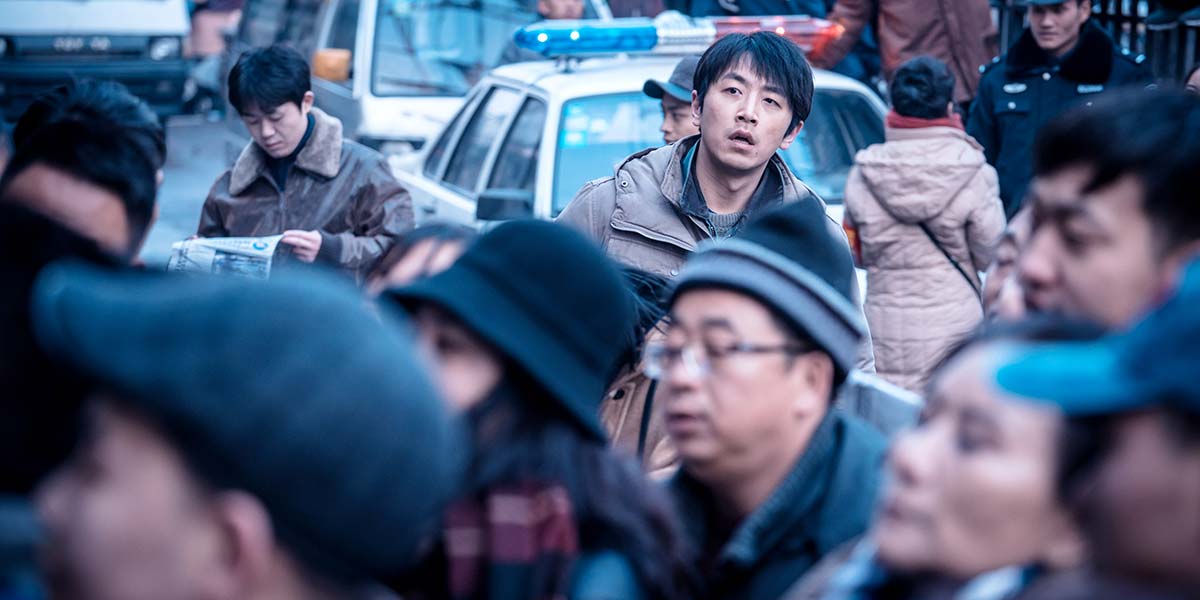
Stills of "Not Ending"
Among all art categories, is it true that movies are the only ones that pursue realism? Poetry, music, and painting are all freehand. If movies can still be counted as an art category. When "A Train Into the Station" was screened for the first time in a café in Paris, the entire audience ran out in fright, thinking they were going to be hit by a train and die. From the beginning of the film's birth, it has been established to make the audience believe in the world in front of them. All our audio-visual languages and audio-visual presentation methods, whether it is props, furnishings, or scenery, the picture changes from black and white to color, and the sound changes from 2.0 to 5.1. , 7.1, panoramic sound, including 3D, 4K, frame rate improvement...even when it comes to the field of cartoons, Pixar's annual cartoons will tell the audience how well the details of the characters' hair and pores are done, and all technical aspects Progress or conceptual progress is all about saying that movies can be more real, and it's all about building this sense of trust.
As creators, in order to provide a value or morality in this world that may be different from the world in which we live in the flesh, we must provide these possibilities. So this is the movie I understand-it should be a tool, by constructing a world that people believe in, to convey to the audience the moral values and values that they think are correct.
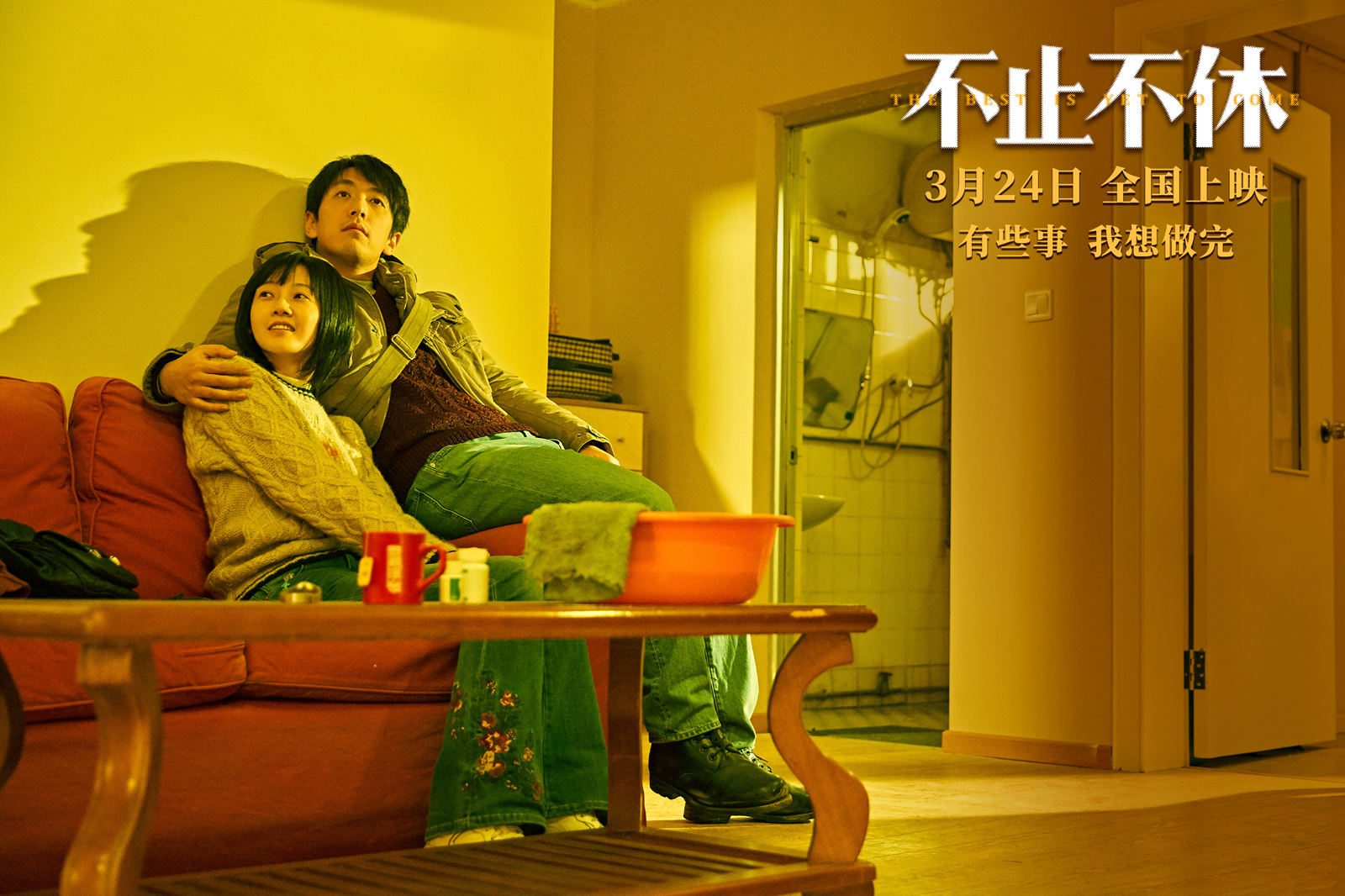
"Not Ending" stills, Miao Miao (left) as Xiaozhu
The Paper: This film has been expected by many people to be the next "Medical God" since its debut in various film festivals in the past few years. What do you think of the expectations of the public?
Wang Jing: This question has troubled me for a long time. Actually, to be honest, Director Wen Muye and I are classmates, but we don’t know each other. I also understand why everyone compares this movie to "The God of Medicine". It's a very normal thing. The audience will go to such a movie with an expectation that should not be imposed on the movie, and I will wonder what went wrong? The root of the problem is not that there are too few such movies. The similarity between the two films may just be that they both focus on some people in trouble and give them some care. If this is the case, it will be classified as a "medicine god" movie, I would rather have more movies like the "medicine god" that everyone says.
The Paper: The ending of the movie feels a bit "stopped abruptly". Why did you choose such an ending?
Wang Jing: As a realistic film, the movie "Not Ending" seems to be a happy ending. But why did I reappear the four words of the film title "endless" at the end of the film in the final version? Some people think that this is passion and the attitude of the characters, so whether there is another level of understanding, whether there is another dilemma of this kind, whether it is changing, it has not stopped.


